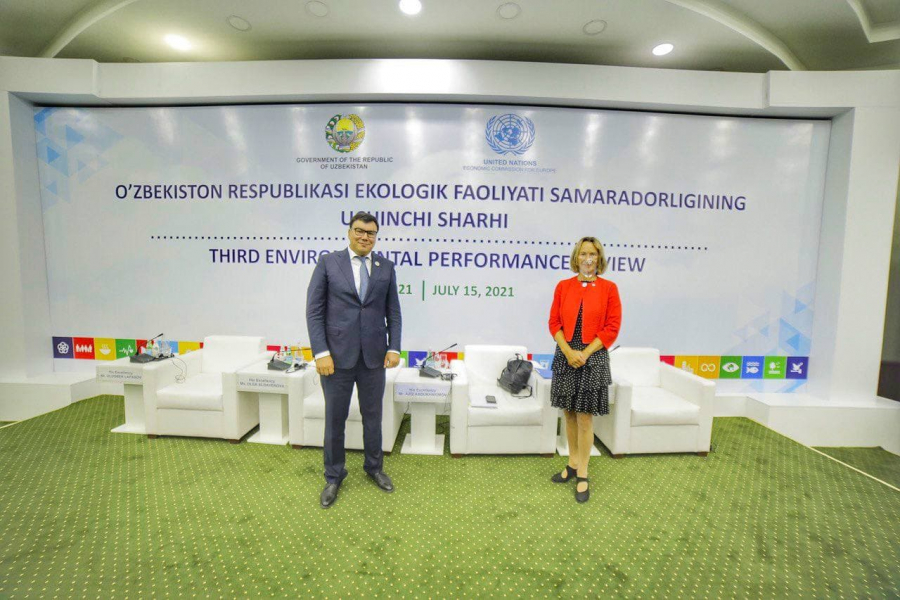On July 15 2021, the III Review of the Environmental Performance of the Republic of Uzbekistan was presented at the Academy of Public Administration under the President of the Republic of Uzbekistan.
The event was opened by the Deputy Prime Minister of the Republic of Uzbekistan, Minister of Tourism and Sport A. A. Abdukhakimov together with the Deputy Secretary-General of the United Nations, Executive Secretary of the United Nations Economic Commission for Europe Mrs. O. A. Algaerova, international experts, as well as heads of ministries and departments.
The Environmental Performance Review organized by the United Nations Economic Commission for Europe (Environmental Performance Review — EPR) reflects the processes of evaluating the achievements made by a country in improving environmental policy.
The EPR is conducted under the auspices of the Committee on Environmental Policy of the United Nations Economic Commission for Europe.
The purpose of the EPR is the interstate receipt of an external independent, impartial assessment of the state of the environment, nature protection, pollution reduction, and natural resource management. At the same time, the EPR evaluates the progress made by Governments in the field of environmental protection and sustainable development, in particular, for the sustainable development of the Republic of Uzbekistan, consisting of 17 chapters, 539 pages containing an assessment, conclusion and recommendations in accordance with the EPR of the Republic of Uzbekistan.
For reference: the processes of assessing achievements in improving environmental performance in our country were first conducted in Uzbekistan in 2001, the second time in 2009.
The III Review of Environmental Performance in the Republic of Uzbekistan was launched in October 2018. International experts visited from February 23 to March 7, 2019 to prepare the outlined review.
The Review of the effectiveness of environmental activities in the Republic of Uzbekistan highlights the regulatory and strategic framework, the financing of environmental protection measures, the introduction of the principles of a “green " economy, the protection of atmospheric air, water resources management, adaptation to the effects of climate change, the conservation of biodiversity and important issues related to household waste for the country.


